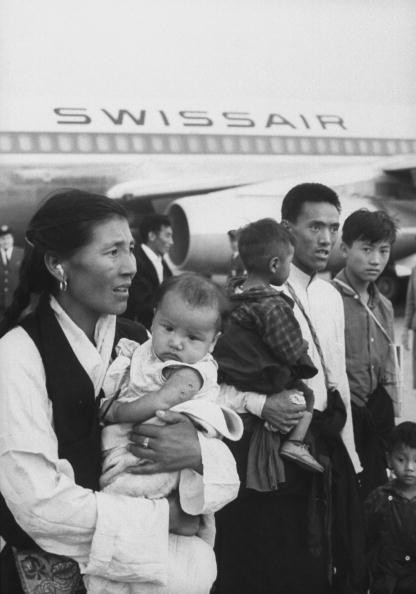Switzerland's revision of its immigration policy for Tibetan exiles in the country, asking them to alter their nationality to Chinese, is seen as part of the Berne's efforts to improve ties with China, according to a report by dnaindia.com.
The Global Times said in an article that since the revision of the immigration policy, it became more difficult for the community of "Tibetan-in-exile" in the country to obtain an official identification as refugees. In July 2016, the Swiss government asked asylum seekers from Tibet to change their nationality to Chinese.
Media reports said that by the end of November last year, the approval rate for Tibetans seeking asylum in Switzerland dropped by about 50.2 percent, which is lower compared to 65 percent to 85 percent approval rating in 2015.
For a long time, Tibetans in Switzerland have been identifying themselves as citizens of Tibet or "stateless."
More than 4,000 Tibetans live in Switzerland, which is the largest Tibetan refugee group in Europe. The country has also become a major base for Tibetan separatists in the continent, the report said.
Switzerland, a small European nation known for its strong human rights advocacy, has been welcoming Tibetan exiles since China occupied Tibet in 1951 although Swiss authorities arrested Tibetan protesters during Chinese President Xi Jinping's visit to the country last month.
The denial of the Swiss government to recognize the Tibet nationality has "no doubt dealt a blow to Tibetan separatists, as well as the so-called 'government-in-exile' led by the 14th Dalai Lama," the Global Times article said.
According to the report, the move came as a result of the "positive Sino-Swiss diplomatic cooperation. Berne must have realized it has more to gain from a strong bilateral relationship with Beijing rather than supporting the Tibetan separatists."
"Once Berne learns that it has a common vision with Beijing, it would certainly support China in its pro-globalization efforts, despite the Tibet question. Western politicians used to play the Dalai Lama card to show off their ideological superiority. But, nowadays, the issue could be used to offset China's clout in the international community," the report added.
"Apart from toning down the Dalai Lama issues, Beijing should work on finding other solutions while making efforts to better integrate China's minority groups as the Tibet question wouldn't vanish upon Dalai Lama's demise," the article said.



























